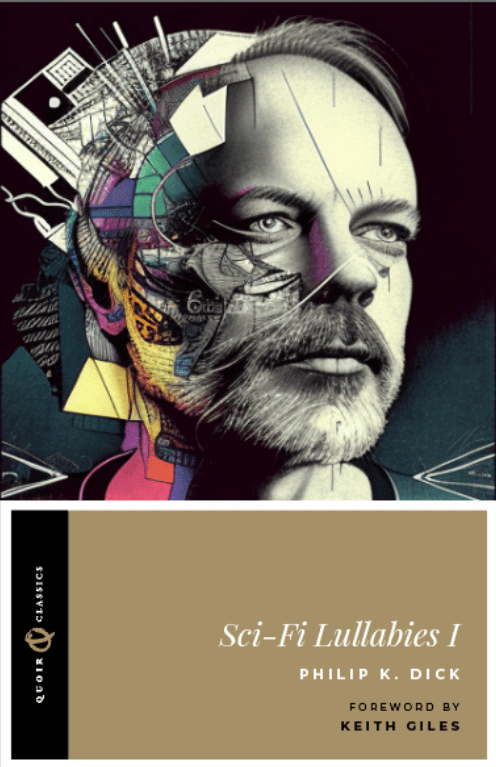
In his novel, Do Androids Dream of Electric Sheep?, author Philip K. Dick imagines a futuristic religious movement called “Mercerism.”
This new global faith movement centers around a messianic figure known as Wilbur Mercer.
Not much is known – or explained – about who Mercer really is, but what we do know is that he is someone who endured intense hatred and persecution during his life and who persevered in spite of the violent opposition against him.
Practitioners of Mercerism have direct access to Mercer through the use of something called “The Empathy Box”, which is a large black device with two handles on either side. By gripping those handles, one is instantly transported into a life-like virtual realm where a direct oneness with Mercer is experienced as he struggles to climb a hillside while faceless people throw stones at him from the edges of his [and your] perception. But, those who fuse with Mercer using the empathy box are also fused with everyone else who happens to be using their own empathy boxes all over the world. So, the experience of being one with Mercer is a shared experience with everyone else who fuses with him, no matter where they are around the globe.
This empathy box allows people to feel whatever Mercer feels and to feel what everyone else is feeling as they hold tightly to their own empathy box handles. Everyone feels the stones that pound into Mercer’s body. They all begin to bleed wherever those rocks strike him. They feel the heat of the sun as it beats down on his back. They hear the voices of those faceless people who shout insults and throw stones at him as he continues the climb.
The entire experience is one of shared struggle with thousands – perhaps millions – of other people who feel what Mercer feels in that moment and endure what he endures in solidarity with his struggle to keep going no matter what forces conspire against him – and you, and everyone else in the world.
The point of Mercerism seems to be varied. For some, the empathy box allows them to feel connected with other people, creating an instant community with other Mercerites that is tangible and real. For others, the experience allows them to feel empathy for other human beings who suffer in various ways. For still others, Mercer becomes a heroic figure who teaches them to carry on no matter what obstacles stand in their way. He gives them hope and determination and faith to keep going, even if it hurts.
In many ways I prefer Mercerism to Christianity because at least Mercerism encourages us to recognize how we’re all connected. It reminds us that everyone is suffering in their own way and that empathy and compassion are the best responses to that suffering.
Christians love to dwell on the suffering of Christ on the cross because of our sins. But his suffering is more about our sinfulness and unworthiness. It devalues our humanity rather than celebrating our common struggle to survive this world. Mercer’s suffering is shared suffering. It’s suffering that allows all of us to regain our humanity and to celebrate our connectivity. Everyone is connected to Mercer and Mercer connects us to one another. Together we share in our sufferings and ease one another’s burdens. No one is alone. No one is excluded. No one is unwelcome.
At least with Mercerism the emphasis isn’t on who is worthy and who is not. It’s not about believing the right doctrines or imposing your theology on others. There are no scriptures to follow. No creeds to memorize. No doctrines to affirm. With Mercerism, the only thing you need is an empathy box that allows you to share in the sufferings of others and to connect you to other people around the globe who are just as human, and just as desperate for community as we all are.
Now, of course, Mercerism is totally fake. Not only in terms of existing within a fictional sci-fi universe, but even within the novel itself it’s revealed that Wilbur Mercer is an actor – his real name is Al Jarry – who is climbing up a hill on a soundstage in a television studio sustaining fake injuries created through special effects.
Still, in many ways, the new religion created by Philip K. Dick in his book has many positive aspects to it that I find compelling. It actually makes we wish there really was such a thing as an Empathy Box that we could all hold on to, no matter where we are in the world, so we could immediately feel what others feel and share in the sufferings of one another, and realize just how connected we all are to everyone, everywhere.
In fact, I kind of think this is what Jesus wanted us to understand when he said that “whatever you’ve done for the least of these you’ve done it to me,” or that “…in that day you will realize that I am in the Father, and you are in me, and I am in you.”
Try saying that yourself for just a moment: “In that day you will realize that Keith is in the Father, and you are in Keith, and Keith is in you.”
What if this is exactly what Jesus wanted us to understand? What if the whole point was that we should realize what Jesus realized: We are in the Father, and we are in one another, and everyone is in everyone else.
Maybe that’s also what Jesus meant when he prayed that we would be One even as he and the Father were One.
It’s not too far out there to imagine, is it?
Quantum Scientists are already starting to come around to the notion that separation is an illusion because everyone and everything around us is merely an expression of the one, singular Quantum field.
So, while it may appear to us that we are separate individual, the truth according to quantum science is that those perceptions are an illusion. The truth is that we are all the quantum field and the quantum field is all of us.
Perhaps Philip K. Dick was on to something with this whole Mercerism thing after all? Maybe he had an idea that what we lack as a species is an awareness of our oneness and connectivity with one another and that if we could somehow create a device that allowed us to experience that connection, maybe one day we might start to embrace the notion that there is no Us/Them. There is only Us.
Until they invent that empathy box, I’ll be holding tight to the notion that we are all connected to one another by a quantum field that holds everything together.
Learning to love one another is the only religion that makes any sense to me now.
Let’s keep holding one another up as we climb that hill and dodge those stones from the sidelines.
Because God is love, and all who live in love live in God, and God lives in them.
Selah.
**

My Foreword for the new collection of Philip K. Dick short stories, Sci-Fi Lullabies Volume 1, is now available on Amazon in paperback and Kindle. Pick up your copy here>
Keith Giles is the best-selling author of the Jesus Un series. He has appeared on CNN, USA Today, BuzzFeed, and John Fugelsang’s “Tell Me Everything.” His latest book, SOLA MYSTERIUM: Celebrating the Beautiful Uncertainty of Everything is available now on Amazon in paperback and on Kindle.













